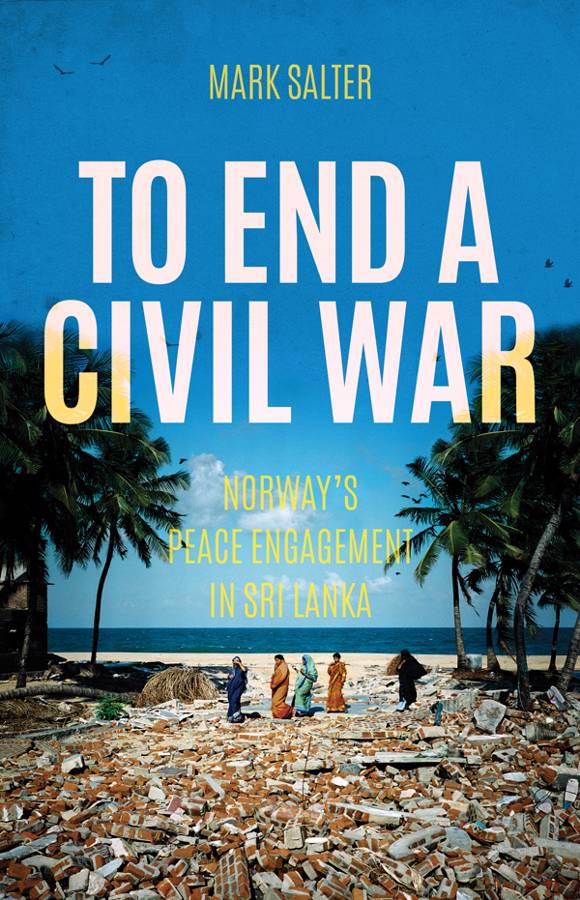
Between 1983 and 2009 Sri Lanka was host to a bitter civil war fought between the Government and the LTTE (Tamil Tigers), which sought the creation of an independent Tamil state. The war ended violently in May 2009 with the crushing defeat of the Tamil Tigers by the Sri Lanka Army amid the deaths of tens of thousands of civilians. But prior to this grim finale, for there had been hope for a peaceful end to the conflict. Beginning with a ceasefire agreement in early 2002, for almost five years a series of peace talks between the two sides, facilitated by Norway, took place in locations ranging from Thailand and Japan to Norway, Germany and Switzerland.
To End a Civil War tells the story of trying to bring peace to Sri Lanka. In particular it tells the story of how a faraway European nation came to play a central role in efforts to end the long-running South Asian conflict, and what its small, dedicated team of mediators did in their untiring efforts to reach the ultimately elusive goal of a negotiated peace. In doing so the book fills a critical gap in understanding the Sri Lankan conflict. But it also illuminates in detail a much wider problem: the intense fragility that surrounds peace processes and the extraordinary lengths to which their proponents often stretch in order to secure their progress.
Erik Solheim (former Norwegian Development Minister and Special Envoy to Sri Lanka) and Vidar Helgesen (former Norwegian Deputy Foreign Minister, now Minister for Europe) are two of the key contributors to the book, authored by Mark Salter.
Speakers:
- Chair: Henrik Syse, Senior researcher, PRIO
- Erik Solheim (former Norwegian Development Minister and Special Envoy to Sri Lanka)
- Mark Salter (Author)
- Anne Julie Semb, Professor, University of Oslo
- Iselin Frydenlund, Senior researcher, PRIO
Erik Solheimwas the main negotiator in the peace process in Sri Lanka from 200-2005. As minister he also contributed to peace processes in Sudan, Nepal, Myanmar and Burundi. In January 2013, Mr. Solheim took the lead of the main body of world donors the OECD Development Assistance Committee (DAC). He is also serving as United Nations Environment Programme’s special envoy for environment, conflict and disaster. From 2007 to 2012 he held the combined portfolio of Norway’s Minister of the Environment and International Development; he also served as Minister of International Development from 2005 to 2007.
Mark Salteris a teacher and BBC journalist by training. Over the last 25 years he has worked in a wide range of professional settings including international NGOs, research institutes and intergovernmental organizations. His work has focused on issues of democracy, conflict, reconciliation and diversity management.
Anne Julie Sembis professor at the Department of political science, University of Oslo. Semb's academic interests include conflicts between states and groups, state sovereignty, citizenship, minority issues, and human rights.
Iselin Frydenlund is a senior researcher at PRIO and Norwegian Centre for Human Rights, University of Oslo. Her research interests include the role of religion in war and peace, suicide terrorism, interreligious dialogue in its various forms, and freedom of religion or belief. She has written extensively on the role of Buddhism in the Sri Lankan civil war.
Henrik Syse is a senior researcher at PRIO. He works on the ethics of war, historically and systematically, as well as on the relationship between religion and the use of armed force.





